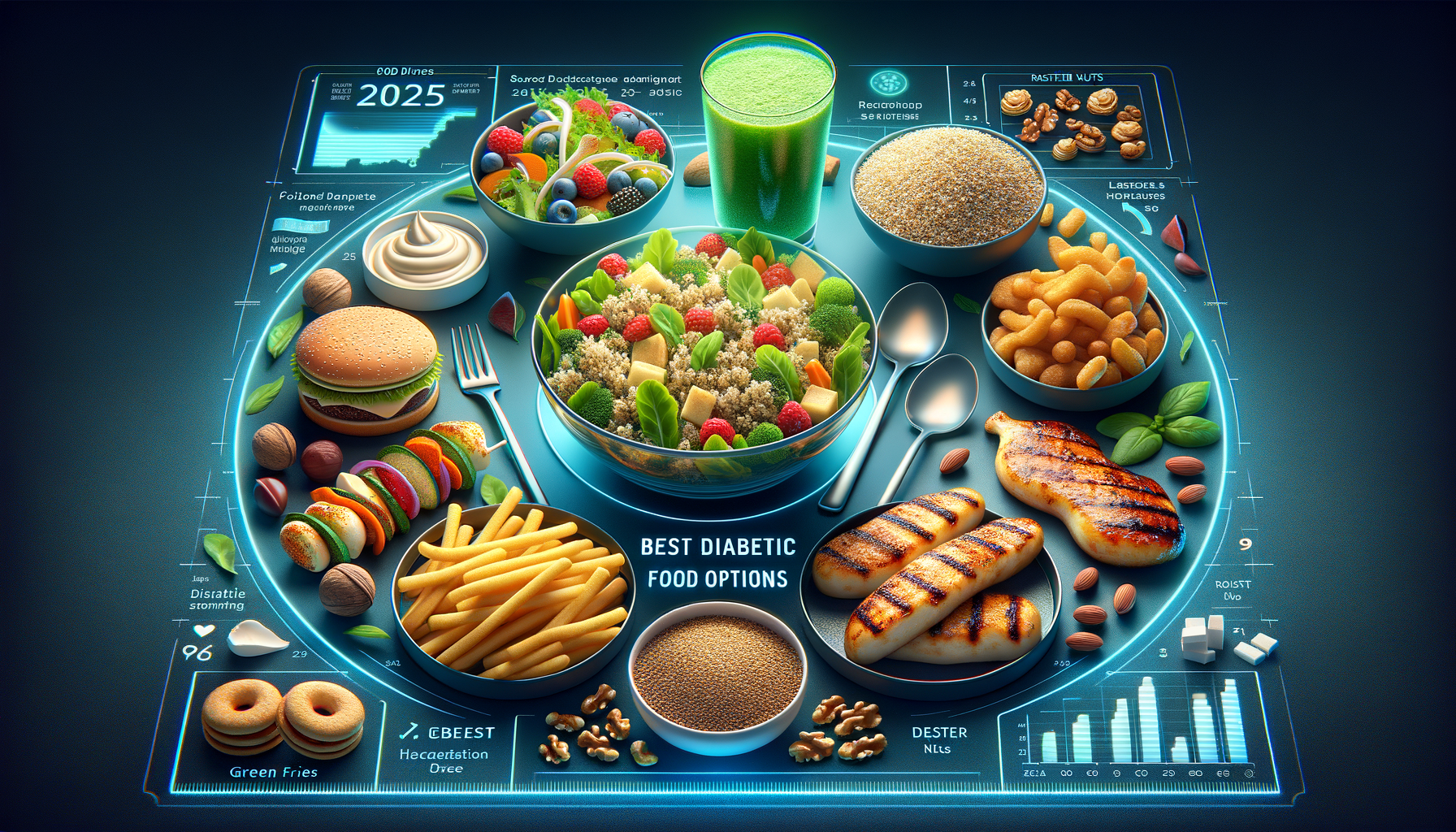Introduction to Diabetic Foods
Managing diabetes effectively requires a keen understanding of how different foods impact blood sugar levels. With the prevalence of diabetes on the rise, knowing what to eat and what to avoid is more crucial than ever. This article will delve into various food options that can help maintain balanced blood sugar levels, offering insights into the nutritional choices that support a healthy lifestyle for those living with diabetes.
Understanding Carbohydrates and Their Impact
Carbohydrates are a primary energy source, but for individuals with diabetes, they can significantly affect blood sugar levels. Not all carbohydrates are created equal, and understanding the difference between simple and complex carbohydrates is essential. Simple carbohydrates, found in sugary snacks and processed foods, can cause rapid spikes in blood sugar. In contrast, complex carbohydrates, such as those found in whole grains and vegetables, are digested more slowly, leading to a gradual rise in blood sugar.
To manage diabetes effectively, it’s beneficial to focus on foods with a low glycemic index (GI), which measure how quickly a carbohydrate-containing food raises blood glucose levels. Foods with a low GI include:
- Whole grains such as quinoa and barley
- Legumes like lentils and chickpeas
- Non-starchy vegetables such as broccoli and spinach
Incorporating these foods into a daily diet can help stabilize blood sugar levels and reduce the risk of complications associated with diabetes.
Protein Choices for Diabetics
Proteins play a vital role in a diabetic diet by providing energy without causing significant spikes in blood sugar. Lean protein sources are particularly beneficial as they offer essential nutrients without excessive saturated fats. Some top-rated protein options include:
- Fish, especially fatty varieties like salmon and mackerel, rich in omega-3 fatty acids
- Poultry, such as chicken or turkey, without the skin
- Plant-based proteins, including tofu and tempeh
These proteins can be integrated into meals to create balanced dishes that support overall health. Additionally, they contribute to satiety, helping to control hunger and maintain a healthy weight, which is crucial for diabetes management.
Fats: The Good and the Bad
Fats are an essential part of any diet, but for those with diabetes, choosing the right types of fats is key. Unsaturated fats, found in foods like avocados, nuts, and olive oil, are considered heart-healthy and can improve cholesterol levels. On the other hand, saturated and trans fats, found in fried foods and baked goods, should be limited as they can increase the risk of heart disease, a common complication of diabetes.
Incorporating healthy fats into your diet can be as simple as:
- Using olive oil for cooking instead of butter
- Adding a handful of nuts to salads or yogurt
- Including fatty fish in your weekly meal plan
By focusing on these healthier fat options, individuals with diabetes can support cardiovascular health and maintain balanced blood sugar levels.
Snacking Smart: Low-Sugar Options
Snacking can be a challenge for those managing diabetes, but with careful planning, it can be an opportunity to boost nutrition without spiking blood sugar. Choosing snacks that are low in sugar and high in fiber or protein can help maintain energy levels between meals. Some excellent snack choices include:
- Greek yogurt with berries
- Raw vegetables with hummus
- A small handful of almonds or walnuts
These snacks provide essential nutrients and can help prevent overeating during main meals. By making informed snack choices, individuals with diabetes can enjoy a varied diet while keeping their blood sugar levels in check.
Conclusion: Empowering Your Dietary Choices
Living with diabetes doesn’t mean sacrificing flavor or variety in your diet. By understanding the nutritional impact of different foods, individuals can make informed choices that promote health and well-being. From selecting low glycemic index carbohydrates to incorporating healthy fats and proteins, the right dietary choices can empower those with diabetes to lead vibrant, balanced lives.
As the landscape of nutritional science evolves, staying informed and adaptable is key. By embracing these dietary guidelines, individuals can effectively manage their diabetes and enjoy a fulfilling, nutritious diet.




Leave a Reply